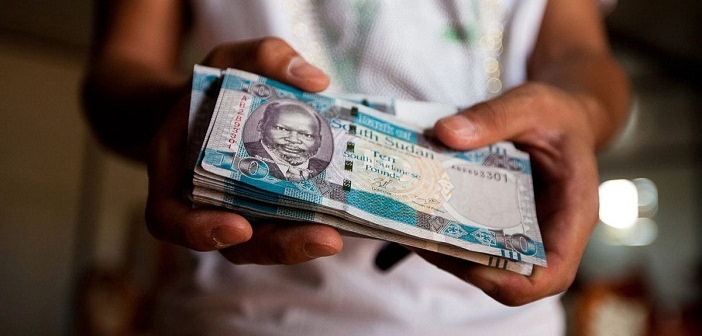South Sudan Central Bank recently announced that it will issue a new 500-pound banknote that will reduce the burden of carrying large amounts of paper money as well as improve the country’s ailing economy.
“The Bank of South Sudan would like to inform the general public that it is introducing a new banknote of five hundred South Sudanese pounds as legal tender in the Republic of South Sudan,” Central Bank Governor Dier Tong Ngor said in a statement.
The 500 pound bill, worth $1.5 U.S. dollars that will soon be released into circulation this month while reducing the amount of bills people carry as rampant inflation continues to devalue the local currency. As of much this year, the country’s inflation stood at 161.20%. It has averaged 89% over the past 10 years, racing to a peak of 835.70% in October 2016.
Currently the largest note in circulation is a 100 pound bill.
The political conflict has hurt the country’s crude oil output, which is at less than half of its pre-war level of 245,000 barrels per day. Recently, Juba and Khartoum announced an agreement to repair oil infrastructure facilities destroyed by the conflict in order to boost production in Africa’s youngest country.
First end the war
An interview carried out by the DW with Mayai (an economist) says that, there are other priorities the government should be following to ensure economic growth.
“First you have to end the war. Then, the government must invest “in agriculture, investing in productive sectors, private sector,” he said.
South Sudan secured independence from Sudan in 2011. In December 2013 a civil war broke out following a dispute between President Salva Kiir and his former deputy Riek Machar. This has plunged the country into a deep crisis, threatening many South Sudan’s 12 million people with hunger.



